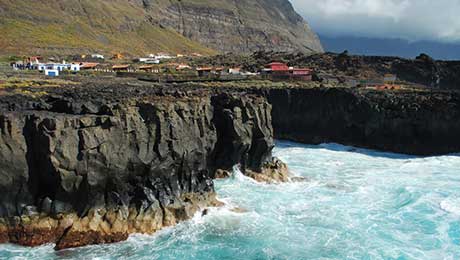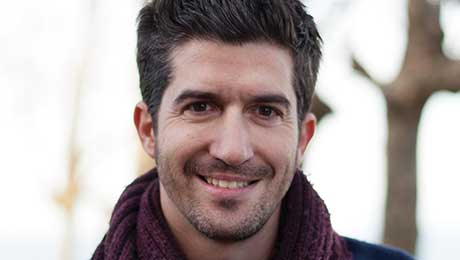New kids on the block
Posted By C21 Reporters On 28-07-2015 @ 3:27 pm In Features | Comments Disabled
Rising production values and a handy new tax break have put Spain firmly on the international coproduction map, reports Toni Sekinah.

Period drama Alatriste, produced by DLO and Beta Film for Mediaset España
There’s a general consensus among Spanish TV producers that coproduction is on the rise in their market and could well be the solution to many of the problems they’re facing.
Official statistics are hard to find but Ramón Colom, president of the Federation of Spanish Audiovisual Producers’ Associations (Fapae), says: “We don’t do that many TV coproductions but there has been an increase and there are going to be more from now on.”
José Manuel Lorenzo, president of the Association of Spanish Television Producers (Pate) and joint CEO at Banijay-owned DLO Producciones in Madrid, says he’s also noticed an increase in coproductions with Spanish companies.
Examples are not hard to find. One in development for LaSexta is Hierro by Boomerang TV Group’s Galician subsidiary Portocabo, the pilot of which saw off competition from five other countries to win the CoPro Series category at the Berlin International Film Festival in February.
Others include Barefoot on Red Soil, a miniseries coproduced with Brazil, as well as a raft of other minis coproduced with Italy, such as The Avatars, The Lady with the Black Veil, Anna Karenina, Romeo & Juliet, One Thousand and One Nights and Beauty & the Beast.
Higher-profile examples would be The Refugees by Bambú Producciones and BBC Worldwide for LaSexta, and Alatriste, a period drama produced by DLO and Beta Film for Mediaset España. The German distributor was also at MipTV with its latest Spanish show, contemporary thriller Under Suspicion, from Bambú and Antena 3.
Lorenzo and Bambú producer Ramón Campos attribute this trend to a rise in the quality of homegrown Spanish series. Higher production values have led other countries to look favourably at Spain when considering coproduction, they argue.

Hierro won the CoPro Series category at the Berlin International Film Festival
Lorenzo also cites The Mysteries of Laura and Tiempo Entre Costuras as shows that have proved Spanish producers are able to make programmes with international traction.
Another factor thought to have aided the coproduction boom is the increasing internationalisation of drama. Stories set in different territories with protagonists of different nationalities naturally lend themselves to international coproduction.
This is the view of Geraldine Gonard, director of operations at Imagina International Sales, who also underlines the important issue of financing as a key driver of this increase in coproduction.
The Spanish audiovisual sector saw its budgets tighten in the fall-out of the financial crisis of the past few years, which led to TV advertising dropping almost 20% during the slump of 2012. Producers and networks have had to co-finance their projects with money from abroad simply to get them made. This was certainly the case with Alatriste, as Lorenzo acknowledges: “Producing it would not have been possible with just Spanish capital.”
Though foreign finance may have been the main reason for coproducing a few years ago, it’s now the prestige the Spanish are enjoying on the global stage that is bringing international producers to the table.
Ignacio Manubens, sub-director of drama at Atresmedia Television, says: “Creatively, the Spanish industry has reached a level where it’s ready to be more present in the international market. We have solid original concepts and a production model that is interesting for other territories.”
It is also worth considering the generous tax breaks offered by the Spanish government. In January, the ministry of education, culture and sport reformed its tax incentive upwards to 15% of production costs incurred in Spain.

Manubens: ‘The Spanish industry has reached a level where
it’s ready to be more present in the international market’
In the Canary Islands, tax relief offered to national and international drama, documentary and animation series is even greater – around 35%, according to Fapae’s Colom. Hierro was filmed in the Canaries but Portocabo CEO Alfonso Blanco says that while the tax incentive was a draw, it was not the driving force behind the project.
Nevertheless, taking part in a coproduction is often seen as a way for production participants to share risk, as Bambú’s Campos confirms: “With The Refugees, it was possible for the channels to do a more daring series with less economic risk.”
One of the other upsides of coproduction is the exposure Spanish producers get to new trends and ways of thinking. “For the producer, it is enormously positive because you get creative input from others, and hear different ways of thinking and new points of view that can improve a story and make it more universal,” says Blanco.
According to Gonard, meanwhile, coproducing results in a “more beautiful project due to better casting and more locations.”
Another advantage is that it can be a way for a firm to raise its profile in the industry, especially for a minority participant. Pepa Sanchez-Biezma, director of TV movies and miniseries at Mediaset España-owned channel Telecinco, says: “Working with Italy’s Lux Vide or Germany’s Beta Film offers us a guarantee of quality and visibility in the international market.”
A story with international appeal is one of the most important aspects of an international coproduction, and was integral to the miniseries Barefoot on Red Soil (2×85’), by Barcelona-based Minoria Absoluta for TVE, TV de Catalunya and TV Brasil.
Adapted from a book by Francesc Escribano, it tells the story of a Catalan bishop who is sent to Brazil where he fights for the rights of peasants in the west of the country. It was filmed in Catalonia with Catalan actors speaking Catalan, and in Brazil with Brazilian actors speaking Portuguese.
Historical works with easily recognisable themes also work well as international coproductions. Telecinco, for example, has produced several classic stories and fables as miniseries in collaboration with Mediaset Italia, such as Beauty & the Beast.

The Refugees, by Bambú Producciones and BBC Worldwide
Producers from other European countries are the most sought-after coproduction partners for television producers in Spain, with Italy proving particularly popular. While the Telecinco/Mediaset projects are likely aided by the fact the pair have the same parent company, Telecinco is not alone in seeing partnerships with Italy as potentially fruitful. Campos says Bambú could easily work with Italian producers due to the similarities between the two nationalities and cultures.
Germany is another popular choice as a copro partner. Beta, for example, is involved with Alatriste and some of the Mediaset España miniseries. Blanco, meanwhile has secured a partnership with Germany’s Nadcon for Hierro and says Germany was his first choice, as firms from the country have a “reputation of being easy to coproduce with.”
And Campos, co-creator of The Refugees, an Anglo-Spanish coproduction, speaks very highly of UK producers. “The most attractive partners are without doubt from Great Britain,” he says. “To us in Spain, it is the cradle of drama.”
Outside Europe, Spanish producers see partnerships with Latin American companies as an attractive prospect, with the region viewed as a natural market due to the common language.
Though more international copro projects are in the pipeline, Spanish producers are keeping their upcoming projects very close to their chests. Ivan Diaz, head of the international division at Red Band Society prodco Filmax, for instance, has several copro projects in the works with Latin American and European partners but is keeping them under wraps until Mipcom. Ditto Laura Miñarro, VP of international coproductions at Globomedia.
DLO currently has three new dramas in the pipeline: Dime Quien Soy, Librenos del Mal and Wounded. Joint CEO Lorenzo is open to bringing in international partners for all three programmes, explaining that the first was developed specifically as a copro while the latter pair could be made with solely national producers.
With Hierro already gaining international acclaim before all the financial agreements have been signed off, Spanish producers are certainly making a name for themselves as innovative copro partners.
Portocabo’s Blanco is planning to premiere the thriller at the 2016 Berlin International Film Festival. By that time, a snowball effect of greater visibility, respect for Spanish production and tax breaks will mean many more projects and many more partnerships.
Article printed from C21Media: https://www.c21media.net
URL to article: https://www.c21media.net/new-kids-on-the-block-2/
Click here to print.